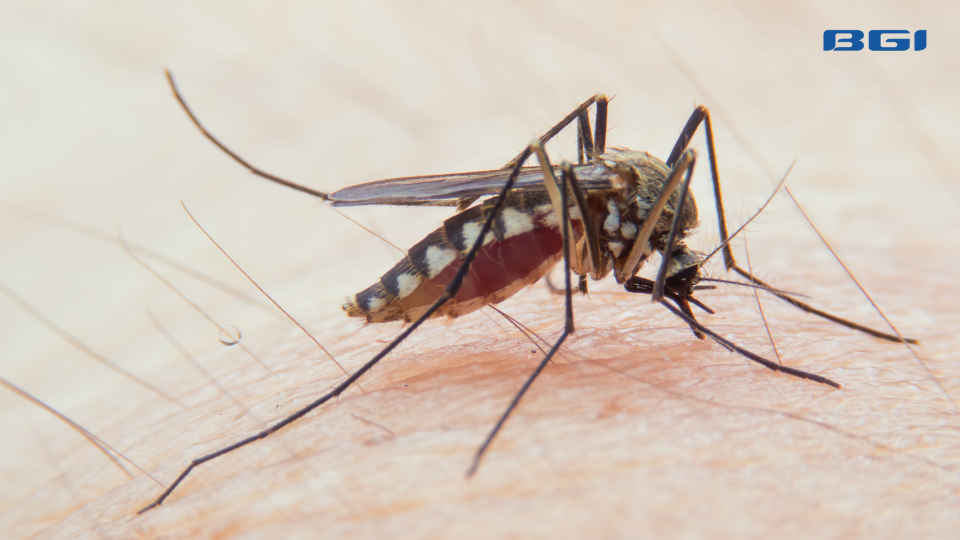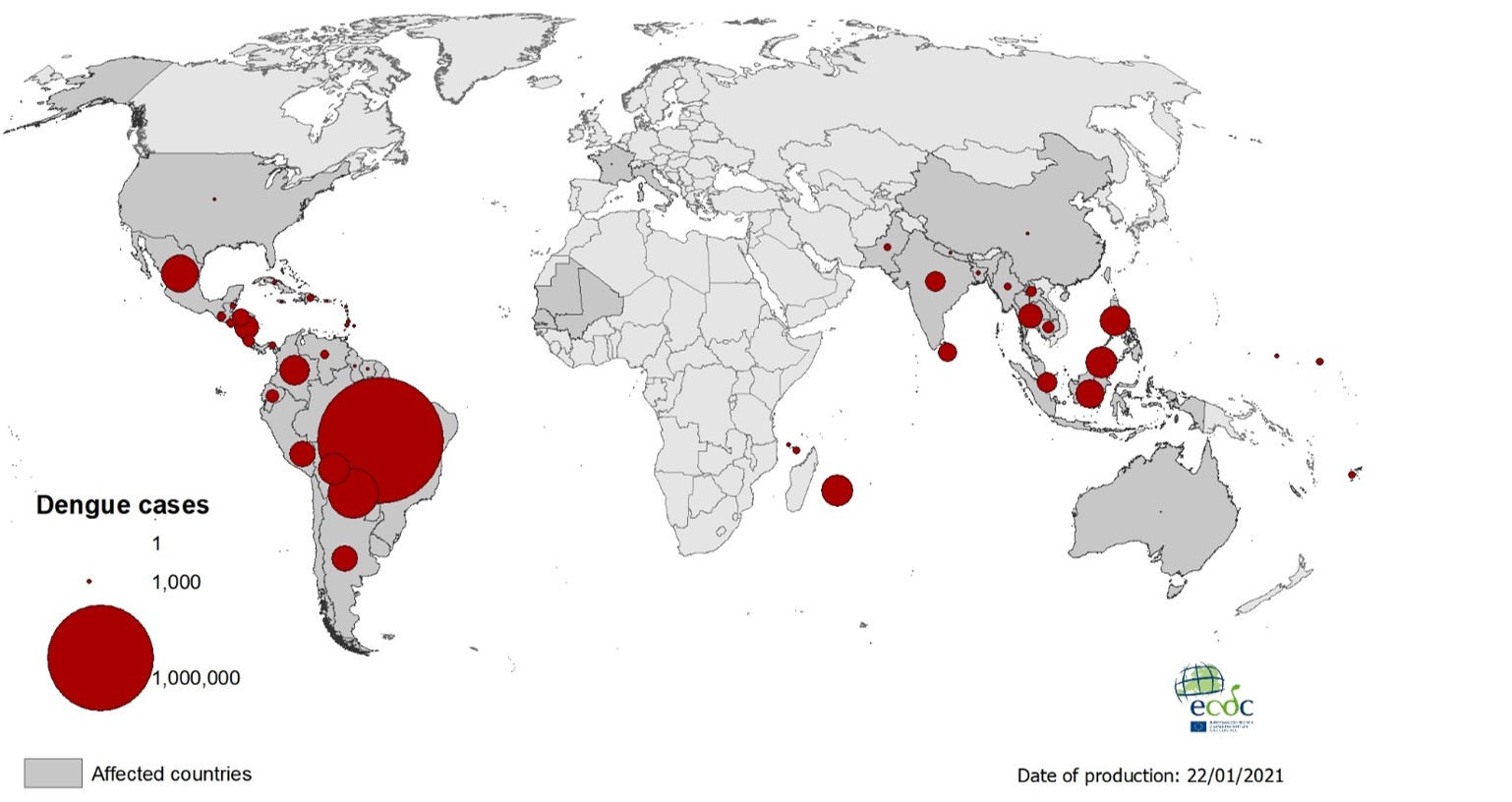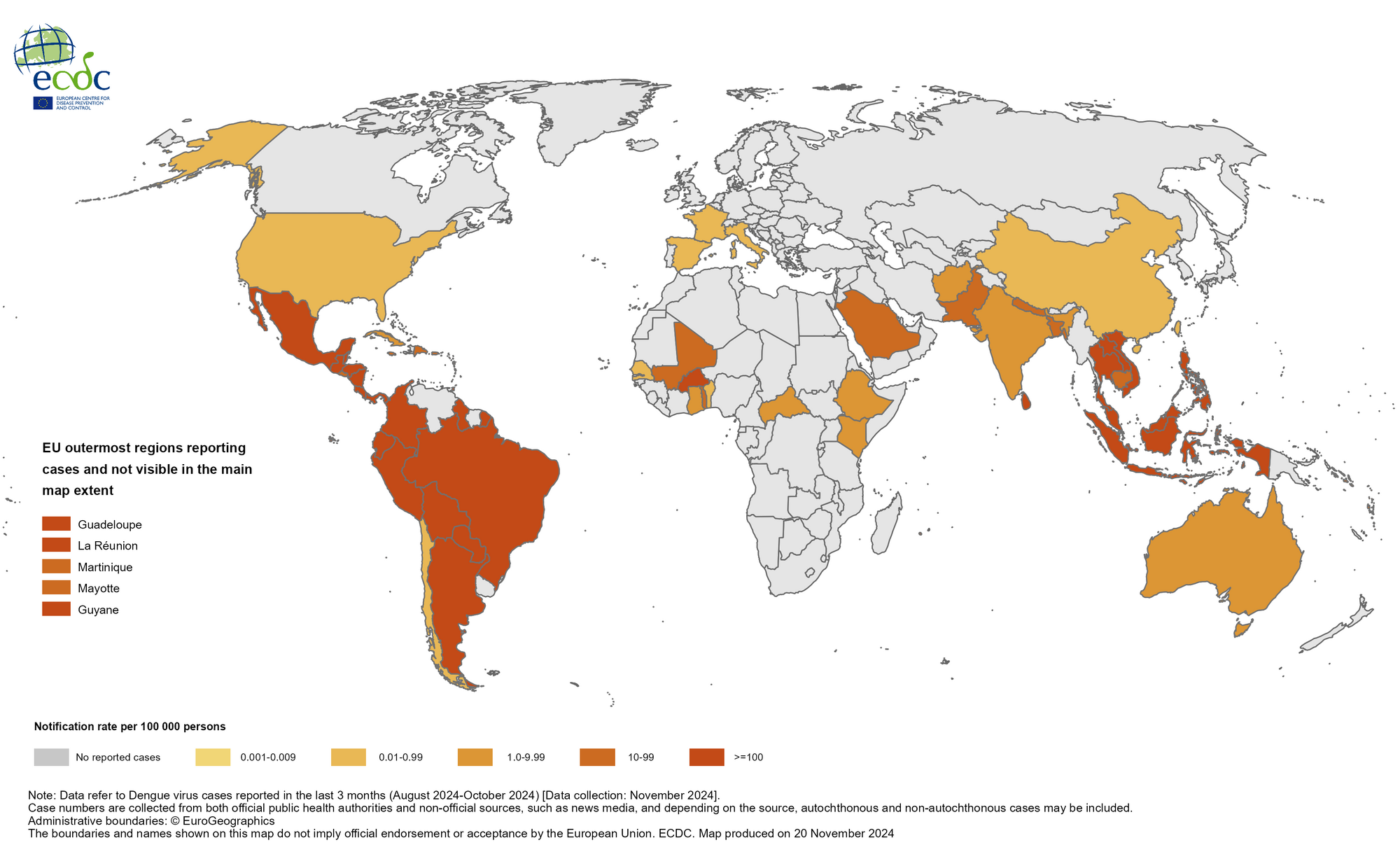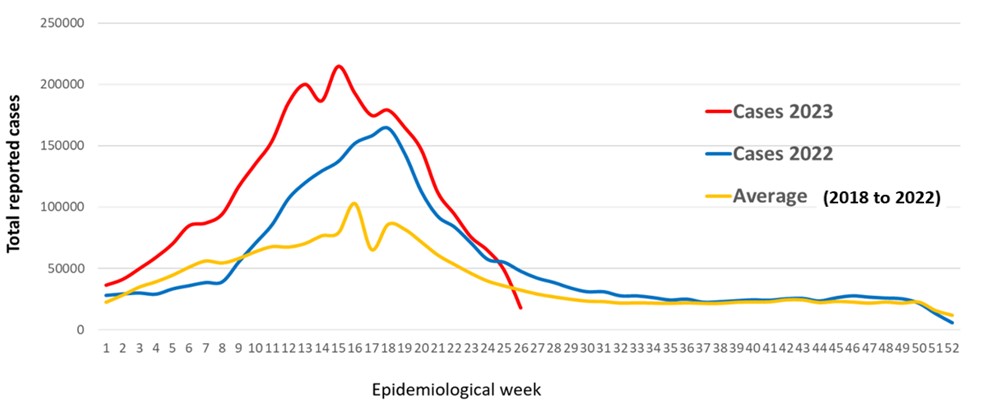Act Before the Season: Warmer Weather Drives a Surge in Deadly Mosquito-Borne Diseases | BGI Insight
2024-12-16

Over 10,000 deaths from dengue fever have been reported worldwide this year. Dengue is one of the most common mosquito-borne diseases (MBDs). Rising global temperatures are expanding mosquito breeding grounds, exacerbating the spread of MBDs, posing an increasing threat to global public health. Next-generation sequencing (NGS) technology has become a powerful tool that enables clinicians to identify MBDs and provide timely and effective treatment.
In March 2024, a young mother from Cambodia rushed her 4-year-old daughter to Children’s Hospital 2 in Ho Chi Minh City, Vietnam. The child was in critical condition due to dengue fever, suffering from respiratory failure, prolonged shock, multi-organ failure, and more. Rising global temperatures and the surge in mosquito-borne diseases worldwide are making stories like hers increasingly common.
Record-Breaking Numbers in 2024

Figure 1. Dengue Fever Epidemic Trends in the Americas (1980-2024) Source: Data from Health Information Platform for the Americas (PLISA, PAHO/WHO) by the Ministries and Institutes of Health of the countries and territories of the Region.
From Southeast Asia to the Americas, regions once relatively safe from mosquito-borne illnesses are now experiencing outbreaks as mosquitoes expand into new territories. Dengue fever, one of the most common mosquito-borne diseases worldwide, is a major concern.

Figure 2. Geographical distribution of dengue cases reported worldwide, 2020. Source: European Centre for Disease Prevention and Control

Figure 3:Three-month dengue virus disease case notification rate per 100 000 population, August to October 2024. Source: European Centre for Disease Prevention and Control
By April 2024, the WHO had reported over 7.6 million dengue cases globally, already surpassing the 2023 total of 6.5 million cases. This sharp increase is particularly evident in the Americas, where more than 3.4 million confirmed cases and over 3,000 deaths have been recorded this year.
Dr. Tedros Adhanom Ghebreyesus, WHO Director-General, cautioned: “The climate crisis is escalating the severity of extreme weather events, increasing food insecurity, exacerbating respiratory diseases, and fueling the spread of infectious diseases.”
While many dengue infections are asymptomatic or result in only mild illness, the virus can sometimes lead to severe cases and even death. There is no specific treatment for severe dengue, but early detection and proper medical care greatly reduce the risk of fatal outcomes as the disease progresses.
Cutting-Edge Solutions
Advances in genetic sequencing technology are revolutionizing the detection and response to MBDs. Metagenomic next-generation sequencing (mNGS) is a key innovation that outperforms traditional culture-based methods by identifying pathogens more quickly and covering a broader range of targets. This makes mNGS highly effective for pathogen detection and infectious disease screening.
PMseq™ introduction video
The mNGS operates by extracting all nucleic acids from the clinical samples, performing high-throughput sequencing, and comparing the resulting sequences against a specialized pathogen database. Bioinformatics analyses enhance this process, providing comprehensive sequencing and functional insights into the microbial genomes in the samples.
With high sensitivity, specificity, broad coverage, and robust detection capabilities, mNGS enables faster, more accurate, and comprehensive infection diagnoses. Unlike traditional methods, it does not require prior knowledge of specific pathogens, making it particularly valuable in detecting co-infections or unknown pathogens.

"Metagenomics next-generation sequencing (mNGS) technology provides clinicians with a powerful and highly effective diagnostic tool, enabling the precise and rapid identification of multiple pathogens. Its exceptional utility is particularly evident in addressing complex and challenging cases," said Dr. Eric Xu, Director of Infection Business at BGI Genomics.
Act Before the Season Comes

Figure 4: Comparison of Dengue Fever Cases by Epidemiological Week (2022 vs 2023). Source: WHO, Data entered into the Health Information Platform for the Americas (PLISA, PAHO/WHO) by the Ministries and Institutes of Health of the countries and territories of the Region.
Experts warn that we are only beginning to see the health impacts of climate change. Addressing this crisis requires global efforts, including investing in vector control, advancing diagnostic tools, and implementing robust climate change mitigation policies.
As Dr. Maria Van Kerkhove, infectious disease epidemiologist at the WHO, emphasizes, "Countries need to look at what are the risks to their populations, they need to look at how the changes, climate change and the dynamics of spillover and amplification are changing and prepare for that."
Proactive mosquito control measures and advanced pathogenic sequencing technology can help reduce cases like that of the 4-year-old girl from Cambodia. With timely treatment, she ultimately made a full recovery and was discharged from the hospital.
About BGI Genomics PMseq™
PMseq™ uses mNGS to extract nucleic acids from clinical infection samples after performing pre-processing, followed by sequencing on a high-throughput platform. By comparing the results against the specialized clinical database PMDB and utilizing advanced bioinformatic algorithms, PMseq™ can efficiently identify potential pathogens. This method enables unbiased detection of bacteria, fungi, viruses, parasites, and other pathogens, as well as the assessment of drug resistance and virulence genes. As a result, it significantly enhances the accuracy of pathogen diagnosis and helps guide the targeted use of antibiotics, making infection diagnosis and treatment more precise.
Read:
WHO Declares Mpox Outbreak a Global Health Threat | BGI Insight